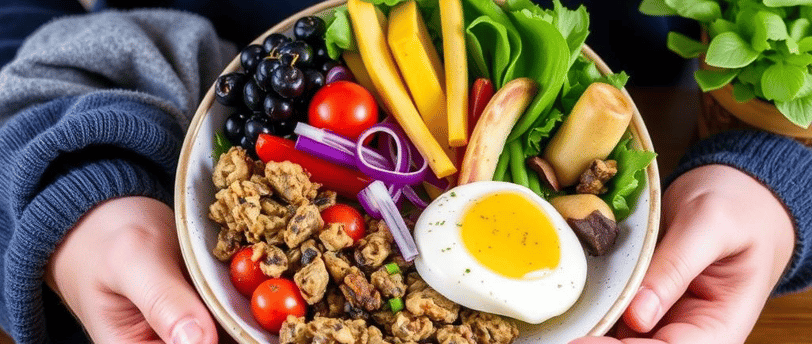Healthy and Sustainable Meal Prep Ideas for Busy People
♻️LIFESTYLE & SUSTAINABILITY


In the fast-paced world we live in, finding time to prepare healthy meals can often seem like a daunting task. Many people resort to quick fixes like fast food or highly processed meals, which are often low in essential nutrients and high in unhealthy fats, sugars, and sodium. However, meal prepping can be a game-changer, allowing you to maintain a healthy diet even amidst a busy schedule. This article will explore healthy and sustainable meal prep ideas tailored for those who are short on time but big on health.
Understanding Meal Prep
Meal preparation, or meal prep, refers to the practice of planning and preparing meals ahead of time. This could involve cooking multiple servings of a dish, pre-chopping vegetables, or making a big batch of a component like grains or legumes. Meal prep can save you time, money, and stress throughout the week, providing you with nutritious options that are both easy and delicious.
Why Embrace Healthy and Sustainable Meal Prep?
1. Health Benefits
Preparing your meals allows you to have control over ingredients, ensuring that you consume balanced meals rich in vitamins, minerals, and other essential nutrients. This can help you maintain a healthy weight, reduce the risk of chronic diseases, and improve mental clarity.
2. Time-Saving
A busy lifestyle often leads to food-related shortcuts, which may compromise nutrition. However, spending a few hours once or twice a week to prep meals can save time during hectic weekdays. With ready-to-eat meals at hand, you can avoid the last-minute scramble to eat something nutritious.
3. Cost-Effectiveness
Eating out or ordering in can quickly drain your budget. Regular meal prep can help you save money by reducing impulse buys and excessive food wastage—especially when you plan meals according to what you already have in your pantry.
4. Sustainability
By cooking at home, you can choose ingredients that align with sustainable practices—supporting local farmers, choosing organic options, and reducing your carbon footprint. Preparing meals in bulk also means less packaging waste compared to individual servings bought from the grocery store.
Smart Meal Prep Tips
Before diving into specific meal prep ideas, consider these tips that can enhance your meal prepping experience:
1. Plan Your Menu
Before you start cooking, take the time to plan your meals for the week. Aim for balance, incorporating proteins, healthy fats, whole grains, and plenty of vegetables.
2. Batch Cook and Store
Cook large batches of food and store them in portioned containers. This can include grains like quinoa or brown rice, proteins such as grilled chicken or tofu, and roasted vegetables. These components can be mixed and matched for variety.
3. Use Seasonal Ingredients
Opt for seasonal and regional produce when possible. Not only is this often more sustainable, but seasonal fruits and vegetables usually taste better and are more affordable.
4. Stay Organized
Label and date your meals to keep track of freshness. Prioritize consuming older items first to minimize waste.
5. Invest in Quality Containers
Good quality, BPA-free containers are essential for storing prepped meals. Look for those that are microwave, dishwasher, and freezer safe, and ideally stackable for space efficiency.
Healthy and Sustainable Meal Prep Ideas
Here are some meal prep ideas that are nutrient-dense and easy to prepare, while also being conscious of sustainability.
1. Overnight Oats
Overnight oats are an excellent breakfast option that’s nutritious and adaptable. Layer rolled oats with your choice of milk or yogurt in a mason jar, and top it with seasonal fruits, nuts, or seeds. For an added twist, incorporate spices like cinnamon or vanilla extract. They can be prepared for several days in advance and stored in the refrigerator.
2. Vegetable and Quinoa Bowls
Cook a large batch of quinoa or brown rice, and pair it with a variety of colorful vegetables. Roasted sweet potatoes, steamed broccoli, and bell peppers not only add nutrients but also provide vibrant lunch options. Top with a protein source, such as chickpeas, grilled chicken, or tofu, and finish off with a drizzle of tahini or a homemade vinaigrette.
3. Soup and Stew
Soups and stews can be made in large quantities and are perfect for batch cooking. A hearty lentil soup or vegetable stew can be frozen in individual portions. Look for seasonal vegetables and legumes, and use sustainable vegetable broth for added flavor.
4. Healthy Snacks
Prepare healthy snacks to prevent mid-afternoon energy crashes. Consider making energy balls with oats, nut butter, and dark chocolate. Alternatively, cut up an array of fresh vegetables like carrots, cucumbers, and bell peppers, paired with hummus or tzatziki for dipping.
5. Smoothie Packs
Prepping smoothie packs can make healthy breakfasts quick and easy. Layer chopped fruits, leafy greens (like kale or spinach), and your choice of nuts or seeds in freezer bags. When you want a smoothie, just blend with your choice of liquid (water, milk, or juice) and go!
6. Stuffed Bell Peppers
Bell peppers are an excellent vessel for a nutritious meal. Stuff them with a mixture of brown rice, black beans, corn, diced tomatoes, and spices. Bake in batches and refrigerate or freeze for easy reheating.
7. Wraps and Sandwiches
Prepare whole grain wraps or sandwiches using nutritious fillings like avocado, lean turkey, or hummus combined with a plethora of veggies. These can be wrapped tightly in parchment paper or foil to preserve freshness.
Conclusion
With a little planning and creativity, meal prep can seamlessly fit into a busy lifestyle while promoting health and sustainability. By choosing nutrient-dense ingredients and being mindful of waste, you can prepare delicious meals that suit your schedule and align with your values. Start small, gradually incorporate meal prepping into your routine, and enjoy the bounty of health on your busy days!
